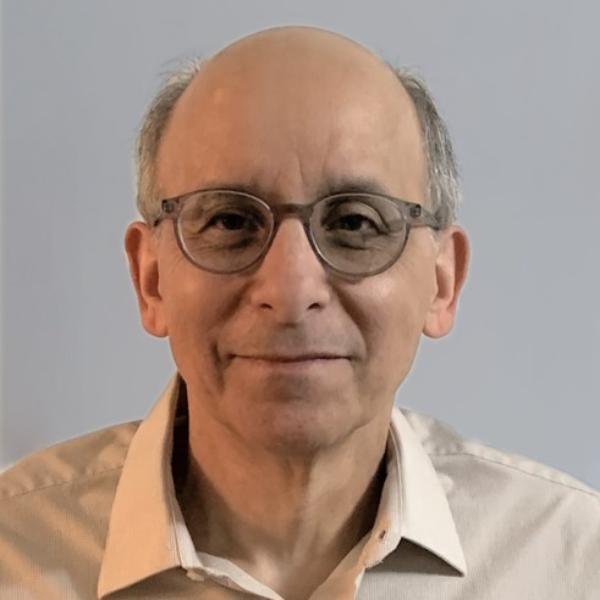Leonard M. Eisenberg, Ph.D., joined NYMC in 2008 after 15 years on the faculty at the Medical University of South Carolina in Charleston. He first became involved with developmental biology and Wnt signal transduction during his postdoctoral studies.
Since coming to NYMC, Dr. Eisenberg's research program has focused on the role of Wnts and epigenetic mechanisms that regulate cardiac stem cell specification and differentiation. Research from Dr. Eisenberg's lab has been published in numerous journals, including the American Journal of Physiology, Cellular Reprogramming, Cell Proliferation, Development, Developmental Biology, Stem Cells and Development, Stem Cells, and Stem Cells International.
Dr. Eisenberg currently serves as academic editor and/or editorial board member for Current Stem Cell Research & Therapy, Stem Cells International, and Public Library of Science (PLOS ONE). Dr. Eisenberg has served as a study section member on multiple grant agencies, including the American Heart Association, the National Institutes of Health and the Singapore National Medical Research Council.
Education
- Ph.D., Immunology, University of Chicago
- B.A., Biochemistry, University of Pennsylvania
- Postdoc., University of Pennsylvania, The Rockefeller University and Cornell University Medical College
Areas of Expertise
- Cardiac Development and Myocardial Differentiation
- Stem Cell Biology
- Wnt Signal Induction
- Epigenetic Regulation of Cell Specification and Differentiation
Research
Dr. Eisenberg’s research program focuses on the generation and maintenance of the myocardium in the embryo and adult, with the specific emphasis on the role that epigenetic regulation and Wnt signal transduction play in promoting cardiac cell differentiation. The laboratory’s recent studies over the past few years have been on the importance of G9a histone methyltransferase (HMTase) in regulating the phenotypic potential of adult stem cells. Specifically, we have shown that inhibition of G9a HMTase-mediated histone methylation can shift the differentiation potential of non-cardiac stem cells, such as bone marrow mesenchymal stem cells, to a cardiac competent phenotype. The suppression of G9a HMTase activity in non-cardiac stem cells allows the cells to respond to cardiogenic differentiation factors and exhibit a gene and protein expression profile similar to nascent cardiomyocytes. Among the most prominent of these cardiac differentiation factors are the WNT family of secreted signaling proteins, which have been shown to play important roles in regulating cell fate decisions of stem cells. WNT regulation is essential for brain, limb, kidney, mammary gland, muscle and heart development and their disregulation has a major influence on tumor formation. Ongoing investigations in the laboratory examine how combinatorial signaling by distinct classes of WNT proteins promote cardiogenesis and allow non-cardiac stem cells to undergo cardiac differentiation following the inhibition of G9a histone methyltransferase.
Publications
- Eisenberg LM, Eisenberg CA. "Stem Cells Associated with Adult Skeletal Muscle Can Form Beating Cardiac Tissue In Vitro in Response to Media Containing Heparin, Dexamethasone, Growth Factors and Hydrogen Peroxide." International journal of molecular sciences, 26(6), (2025) . doi: 10.3390/ijms26062683
- Mitry MA, Laurent D, Keith BL, et. al. "Accelerated cardiomyocyte senescence contributes to late-onset doxorubicin-induced cardiotoxicity." American journal of physiology. Cell physiology, 318(2), (2020) C380-C391. doi: 10.1152/ajpcell.00073.2019
- Ni P, Noh H, Shao Z, et. al. "Large-Scale Generation and Characterization of Homogeneous Populations of Migratory Cortical Interneurons from Human Pluripotent Stem Cells." Molecular therapy. Methods & clinical development, 13(), (2019) 414-430. doi: 10.1016/j.omtm.2019.04.002
- Eisenberg CA, Eisenberg LM. "A Consideration of the Non-Pregnant Human Uterus as a Stem Cell Source for Medical Therapy." Current stem cell research & therapy, 14(1), (2019) 77-78. doi: 10.2174/1574888X1401181217130033
- Shao Z, Noh H, Bin Kim W, et. al. "Dysregulated protocadherin-pathway activity as an intrinsic defect in induced pluripotent stem cell-derived cortical interneurons from subjects with schizophrenia." Nature neuroscience, 22(2), (2019) 229-242. doi: 10.1038/s41593-018-0313-z
- Borghetti G, Eisenberg CA, Signore S, et. al. "Notch signaling modulates the electrical behavior of cardiomyocytes." American journal of physiology. Heart and circulatory physiology, 314(1), (2018) H68-H81. doi: 10.1152/ajpheart.00587.2016
- Li C, Park S, Zhang X, et. al. "Nuclear Gene 33/Mig6 regulates the DNA damage response through an ATM serine/threonine kinase-dependent mechanism." The Journal of biological chemistry, 292(40), (2017) 16746-16759. doi: 10.1074/jbc.M117.803338
Teaching Responsibilities
- Medical Physiology course and Systems Biology course in Reproduction & Endocrinology, New York Medical College, School of Medicine
- Human Physiology graduate course, New York Medical College, Graduate School of Biomedical Sciences
- Dental Physiology course, Touro College of Dental Medicine at NYMC


